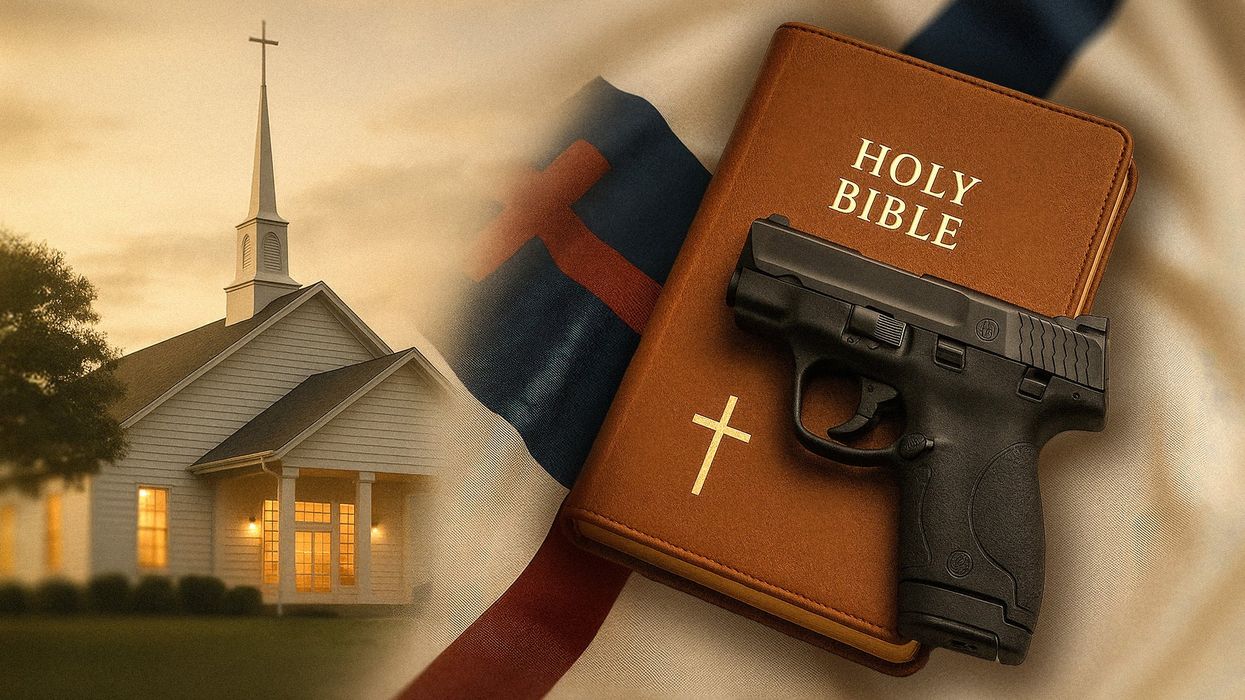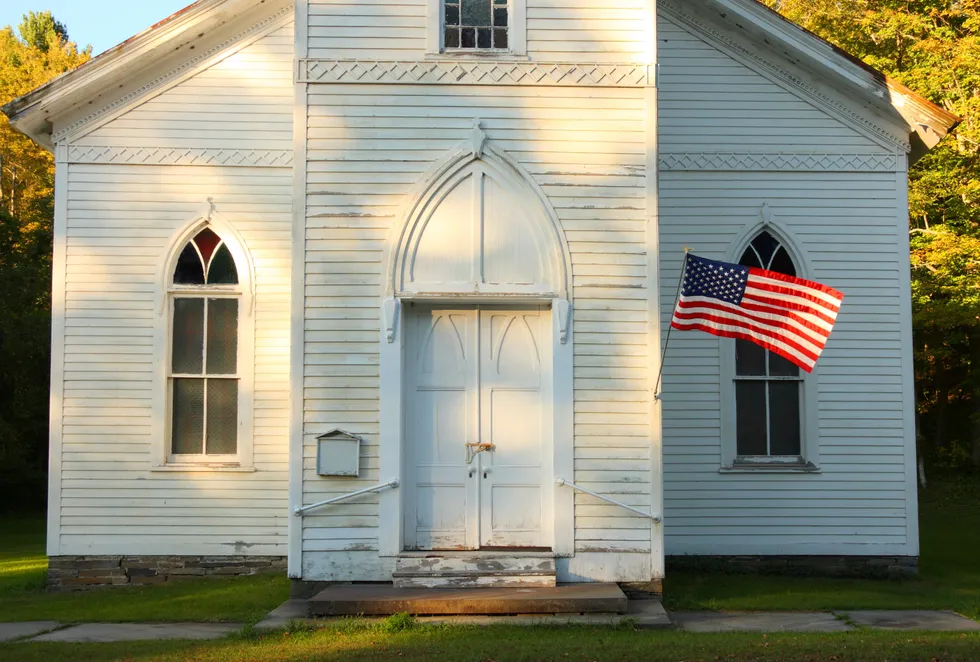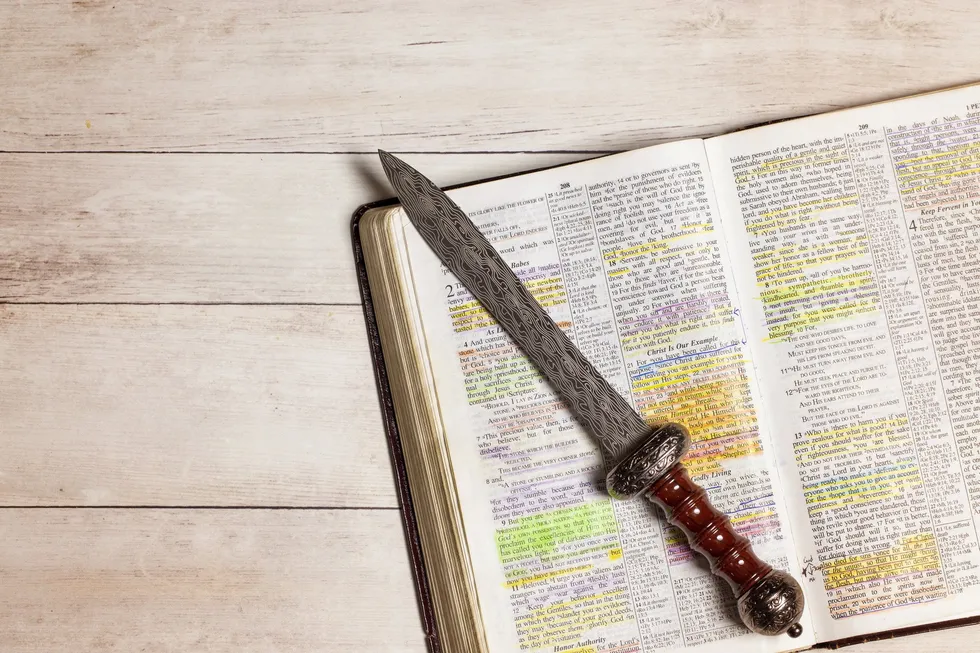
Blaze Media Illustration

It’s time for every church to acknowledge reality and act with courage.
This week, millions of Americans will celebrate the blood-bought freedoms our forefathers secured for us with fireworks, family, and cookouts.
That declaration, signed by 56 men, was not just a recounting of grievances or an important political declaration. It was a document of war. These men were ready to defend their God-given freedoms with steel and shot. Among the signers of the Declaration of Independence was John Witherspoon, a Presbyterian minister. While he was the only pastor who signed the document, the war for independence that followed was supported by clergy in nearly every colony. They brought the spiritual munitions necessary to justify their congregants' and country’s fight against the British crown.
Many churches celebrate the religious liberty enumerated in the First Amendment, but few champion the Second.
This right of self-governance and self-defense was not a novel theological concept. It was baked into Protestant political thought. And it was out of this Protestant heritage that America was born.
However, this type of preaching and instruction seems muted in our day. As Americans’ Second Amendment rights remain besieged in various states and jurisdictions, many pulpits remain silent about the threats their congregants face.
Even more pressing for many churches, though, is the threat posed by those who wish to do the church harm, often while armed.
Every church needs a security team.
In an ideal world, the only weapons needed on a Sunday morning would be the sword of the Spirit and the shield of faith. Our children could run freely through the sanctuary without a single parent wondering if a madman might walk in. Evil would be rare and dealt with swiftly by just rulers who have been appointed to punish the evildoer. In such a world, peace would be the norm, not the exception.
In a merely less-than-ideal world, where threats exist, we would at least hope the civil magistrate would protect churches as sacred gathering spaces. The state would prioritize security for these vital institutions that shape the moral and social health of the nation. And we’d expect the state to make it easier — not harder — for congregations to defend themselves.
But that’s not the world we live in either.
We live in a world where churches are being actively targeted by would-be killers and where politicians pass laws that make congregants sitting ducks. We live in a world where police departments are understaffed, underpaid, and overtasked. And we live in a world where insurance companies and government bureaucracies penalize churches for taking common-sense steps to protect their people.
Recently, a man attempted to carry out a mass shooting at CrossPointe Community Church in Wayne, Michigan. Thankfully, it was thwarted before tragedy struck. A deacon of the church heroically struck the assailant with his pickup truck, slowing the attacker’s approach. Then, a trained member of the church security team engaged the shooter and fatally shot him before he could enter the sanctuary. But the mere fact that it got that close, yet again, should shake pastors and church leaders out of their slumber.
This is not a one-off case. It is the reality that many churches face in a civilization unraveling.
RELATED: Church security team member recalls moment when 'evil came to our door'

And yet when churches take steps to prepare — by forming volunteer security teams, for example — they are often punished by insurers. Many insurance companies raise a church’s premiums by up to 20% if the church has an organized security presence, unless those volunteers undergo professional training that can cost several thousand dollars per person. For small or midsize congregations, this burden is often too high.
Hiring off-duty police officers, meanwhile, can cost $60 to $75 an hour. That may be manageable for a megachurch with a multimillion-dollar budget. But for the average congregation trying to keep the lights on and fund ministry, $30,000 annually for armed security simply isn’t feasible.
It’s not just private institutions or police departments creating barriers. The state is becoming a direct obstacle.
In 2024, Colorado passed Senate Bill 24‑131, which declared churches and other religious buildings to be “sensitive spaces.” Under this law, concealed carry would have been forbidden on church property unless the church explicitly issues a written exemption for each individual. This was ultimately rescinded by the state. But in places like Boulder County, where leftist officials refused to grant the necessary permissions, the exemption requirement remains in place.
In practice, that means churches that want their congregants to carry cannot do so by law.
Colorado is not unique. Similar legislation exists in California, New York, Illinois, and other blue states. The trend is clear: Disarm peaceful citizens and disempower local churches from protecting their congregations.
This means churches are stuck in a legal and financial bind. On one hand, they are increasingly likely to be targeted by insane individuals seeking death or driven by ideological hatred. On the other hand, they are punished for taking even modest steps toward preparedness.
First, we must stop pretending that spiritual and physical safety are mutually exclusive.
Some well-meaning pastors resist forming security teams or speaking of the importance of self-defense because they believe it’s a distraction from the gospel. But loving your neighbor includes defending your neighbor. Good shepherds guard the flock not only from false teachers but from wolves of every kind.
In fact, it seems that we are in a day when advertising that the church has a security team would be an attraction, not a deterrent, to would-be churchgoers.
Scripture does not pit spiritual vigilance against physical readiness. Nehemiah, when rebuilding Jerusalem’s walls, stationed men with swords in one hand and tools in the other. Jesus Himself instructed His disciples to buy a sword (Luke 22:36), not so they could go on the offensive, but so they would be prepared.
RELATED: Meek, not weak: The era of Christian loserdom is over

Second, churches must form well-organized volunteer teams. These don’t need to be tactical operators. They need to be faithful, dependable men vetted, trained, and alert. Veterans, off-duty officers, and responsible gun owners are often already sitting in the pews. Pastors or deacons should identify these men, invest in their development, and establish protocols for emergencies.
Third, churches should not be ashamed to advocate for their rights. As our forefathers understood, there is no biblical reason to surrender the ability to protect one’s people. Just as churches fight for religious liberty, we should also contend for self-defense and security. This includes contacting lawmakers, organizing with other local churches, and resisting unconstitutional laws through legal means.
Many churches celebrate the religious liberty enumerated in the First Amendment, but few champion the Second.
Finally, we must honor the men who already serve. Every week, there are faithful men who sit near the exits, who watch the doors, who glance sideways when a stranger walks in with a backpack, and who make quiet mental notes while others sing hymns. These men aren’t paranoid. They’re protective. They are answering the call to keep watch while others worship in peace.
It’s time for every church to acknowledge reality and act with courage. Our congregations should be places of peace, but not because we are blind to danger. Rather, they should be places of peace because good men stand ready at the gates.
We may live in a fallen world, but that doesn’t mean we must be foolish in it. God does not bless the naive. Churches have a unique calling to shepherd the souls of mankind in the truth of the Lord Jesus Christ.
But that immaterial calling does not stay immaterial. It manifests itself in the material realm. Good shepherds will not just look after the state of the souls of the congregation but also the health of their bodies.
To ignore the physical threat is to misunderstand the Incarnation itself. Christ did not come to redeem disembodied spirits but whole persons, flesh and blood. His ministry was not merely spiritual but deeply material: feeding the hungry, healing the sick, driving out demons, laying down His physical life for His sheep. Likewise, our churches must reflect His care for the whole person.
We prepare the soul with preaching. We guard the body with vigilance. Both are acts of love.
Chase Davis